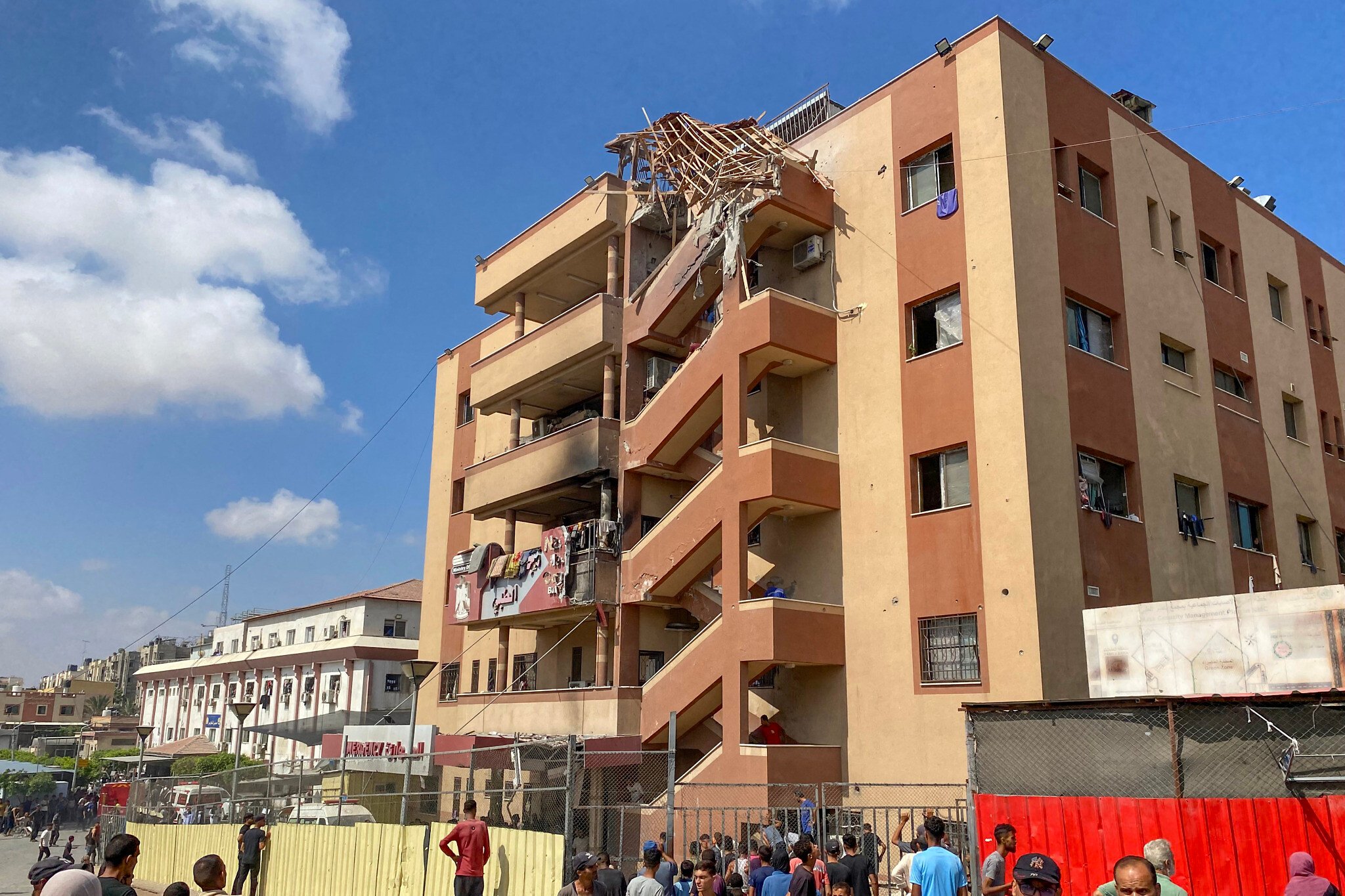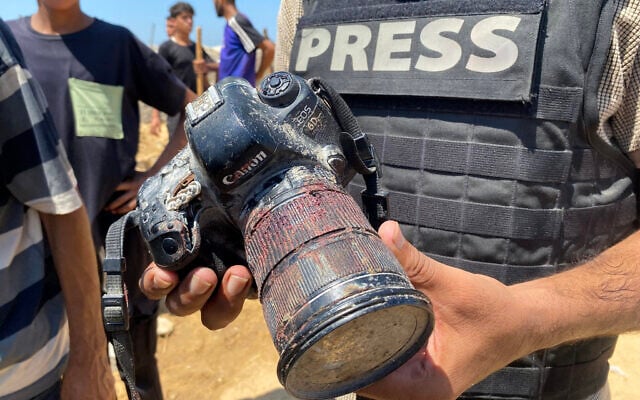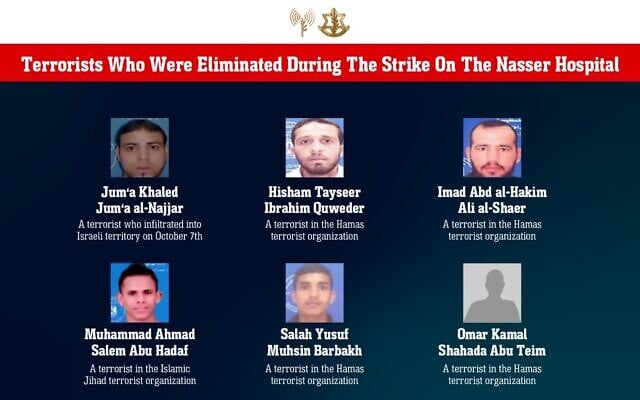



The Israel Defense Forces said Tuesday that its preliminary investigation into Monday’s deadly attack on Nasser Hospital in Khan Younis found that Hamas had installed a surveillance camera on hospital grounds and that six of the more than 20 people killed were operatives in the terror group, including one who took part in the October 7, 2023, massacre in southern Israel.
Hebrew media later reported that IDF Southern Command had only authorized a drone strike on the Hamas surveillance camera but did not approve the use of tank shells that ultimately caused the deaths, including those of several journalists.
According to the reports, Golani Brigade troops first identified the Hamas-installed camera, believed to be monitoring Israeli troop movements. Southern Command approved a drone strike to neutralize the device. Shortly afterward, troops spotted what they thought was a rifle scope, assessed it as an immediate threat, and urgently sought approval to fire.
While the division commander authorized tank fire, Southern Command had not, the reports said. In the end, two shells were fired at the site, followed by two more after armed men were identified, for a total of four. Footage from the scene showed rescuers engulfed in smoke after a second blast struck those rushing to aid victims of the initial strike.
Among those killed — more than 20, according to the Hamas-run Gaza Health Ministry, a figure that has not been independently verified — were Reuters cameraman Hussam al-Masri, AP freelancer Mariam Dagga, and Al Jazeera contributor Mohammed Salama. Channel 12, citing military sources, reported that 18 people were killed in total, including 10 Hamas operatives, though the IDF has so far confirmed only six.
Following the initial investigation’s findings, IDF Chief of Staff Lt. Gen. Eyal Zamir ordered the probe expanded to scrutinize the approval process for the strike, including the timing of the attack, the type of munitions used, and the chain of decision-making on the ground.

The attack drew widespread international condemnation. The European Union’s diplomatic arm called it “completely unacceptable,” urging Israel to protect civilians and journalists under international law. “There have been too many fatalities in this conflict,” the EU’s External Action Service said.
The Foreign Press Association also condemned the strike, saying the shells “hit the exterior staircase of the hospital where journalists frequently stationed themselves with their cameras,” and that they “came with no warning.”
Prime Minister Benjamin Netanyahu’s office said in a statement that Israel “deeply regrets” the attack, calling it a “tragic mishap.”

The IDF reiterated that it regrets civilian casualties and does not target journalists, while accusing Hamas of “cynically” exploiting medical facilities for military purposes.
Hospitals have repeatedly become battlegrounds in the Gaza war, with Israel accusing Hamas of using them to shelter fighters, hold hostages, and conceal military infrastructure.
